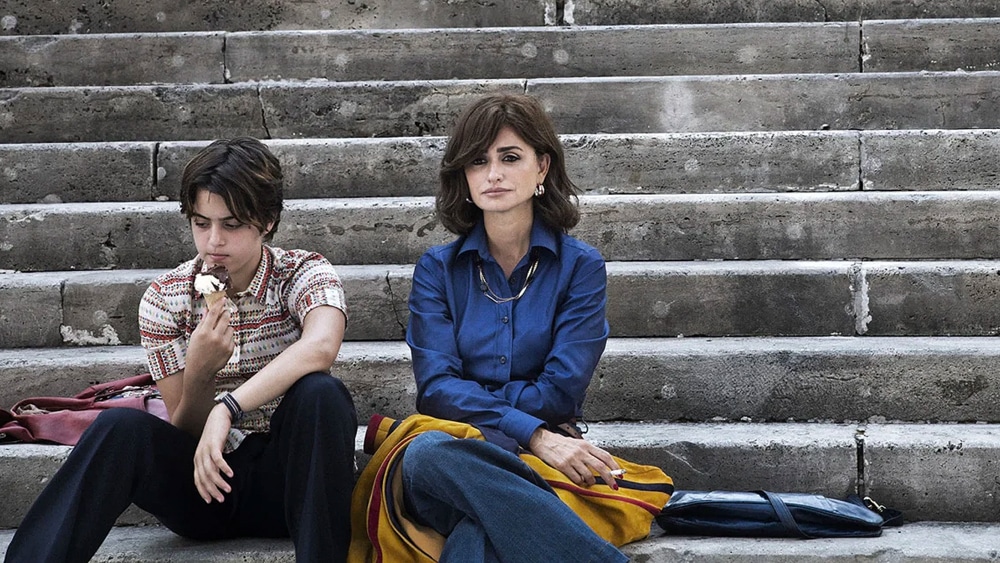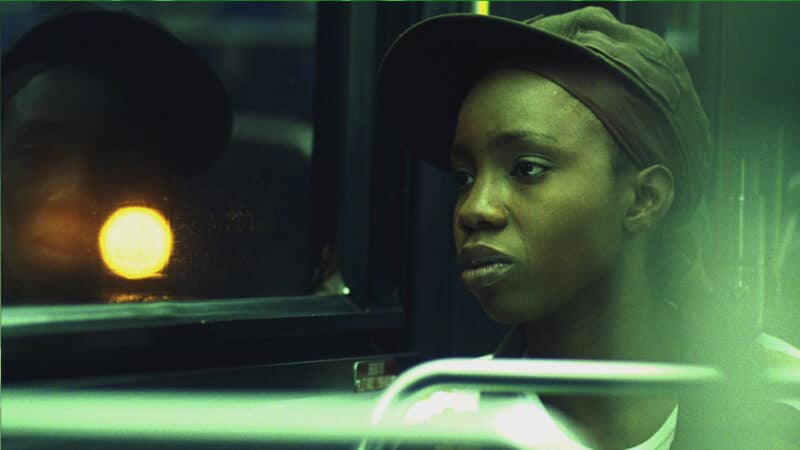Curzon Soho
Despite you reading this in a hopefully sweltering August (the UK general release date) I crammed myself into the Curzon basement for the press screening in June. Now that might not seem relevant until we realise that the gay gods gifted British theatre critics with a coming-of-age trans story, set in all the sequins/squaller of the 1970’s Rome WITH Penelope Cruz….in pride month… a celestial gift indeed!
Pulling from his own life, Emanuele Crialese’s next film sensation follows the fictional Borghetti clan. A sprawling upper-middle-class family that recently moved to the Italian capital. Visually the film is fluttering silk scarves, racing red convertibles, sunshine, cigarettes, and joyful familial scenes. But like any good film this is merely a paper-thin veneer, a charade of normality badly painted on. The Dolce Vita gone sour.
In a mode-ish new build, dark wood, and trippy 70s wallpaper, we meet Clara (Cruz). A woman battling not only the rippling effect of an abusive husband but a world that bores her. Cruz’s deep enchanting auburn eyes are framed by thick eyeliner and a brown shadow, expressive doesn’t begin to explain the effect. They are seen crying, but also flaring up in spirited anger or playful mischief. A vivacious and complex character caught in life’s disappointing spider’s web. The camera adores her, the director clearly adores her, and I adore her.
Yet despite this towering Hollywood presence, this is no Cruz-in-situ, no study of a star. The eldest of her 3 children, played by Luana Giuliani is coming to terms with gender dysphoria, wanting to be called Andrew as opposed to Ari. With the debate around trans identity currently, this battle waged in the dark depths of the 70s is handled deftly. Neither over ladened with misery nor going the other way and creating a non-existent utopia within the film’s universe. Giuliani Builds a character straining at the world around them, convinced that they are an alien due to the dissociation from family, friends, and body. Both Clara’s other children Diana (María Chiara Goretti) and Gina (Patrizio Francioni) layer the pervasive rot that unhappiness can cause to young children with impressive sensitivity. Vincenzo Amato as the father is a distant, explosive figure, embodying the worst attitudes of the decade, not all disco and Cher apparently.
Yet this is so much more than a gritty kitchen sink drama, slick stylish period romp, or even delicate queer coming-of-age story. Crialese, Francesca Manieri, and Vittorio Moroni splice into the poetic and often surreal script flashes of Andrew’s black-and-white dream sequences. Top of the pop style music videos where Andrew and Clara spin in flared suits in a room of mirrors break up the tear-stained faces and slamming doors. Cruz performing in a blonde wig and glittering tight form-fitting dress is the perfect line between chic and camp. There could be more of these as they dilute the misery gratefully. But as it stands, they put to film the escapist psychological strain that is caused by the (unconnected) pressures of body dysmorphia and an unhappy homelife.
Massimo Cantini Parrini’s impeccable eye for costume crafts glamour like only the Italians know how. Red nails and fresh blowouts, razor-thin suits in a range of shades, a world of perfection covering turmoil. The film is an angry underlining of the fact that unhappy people can never hide their grief and the selection of pain we can inflict on one another.
The end rather races towards you and like much artistic cinema is all too inconclusive. But the clash of identity, convention, and expectation is a stylish car crash. Pride month can be so dominated by either stories of tragedy or simpering stories of success, and L’immensità straddles the line between the two. It Immensely (see what I did there) tackles many hot topics in a graceful flick of Cruz’s decorated eyelids, casting them anew in their historical and cultural context. Style And substance, gosh aren’t we a spoilt lot?



